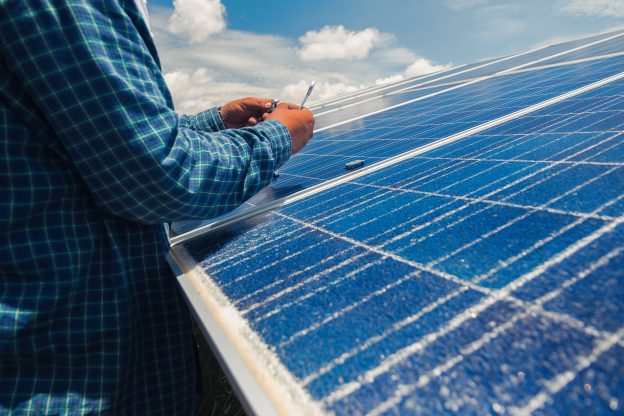
A research team at the University of Warwick of the U.K. has developed a low-cost and high-efficient process which can greatly reduce the discharge of pollutants during the production of solar panels.
The new process boasts a brand new sustainable etching technology, which can avoid the production of metal wastes and toxic chemicals during the manufacturing process; this is unlike the existing etching technologies which employ acid solutions or expensive metal ink. The new technology can be applied in mass production via the use of the roll-to-roll process.
The roll-to-roll process features the use of thermal evaporation, where the silver and copper are heated via the resistor and crucible to evaporate the metals in a vacuum before forming a deposit on an organic compound thin film.

Source: the University of Warwick
The team believes that the new technology can be applied in the production of colorful pliable PV cells, perovskite PV cells, and Nanocrystal PV cells for use in the electric cars and BIPV (building integrated photovoltaic) sectors. Ross Hatton, the associate professor at the University of Warwick, points out that the research team has already utilized the technology in producing a translucent organic PV cell. In addition to thin-film PV cells, the technology is also applicable in the production of sensor and low-radiation glass. The study has been published in the journal, “Materials Horizons.”
(Collaborative media: TechNews, photo courtesy of Flickr/ESA_events CC BY 2.0)







